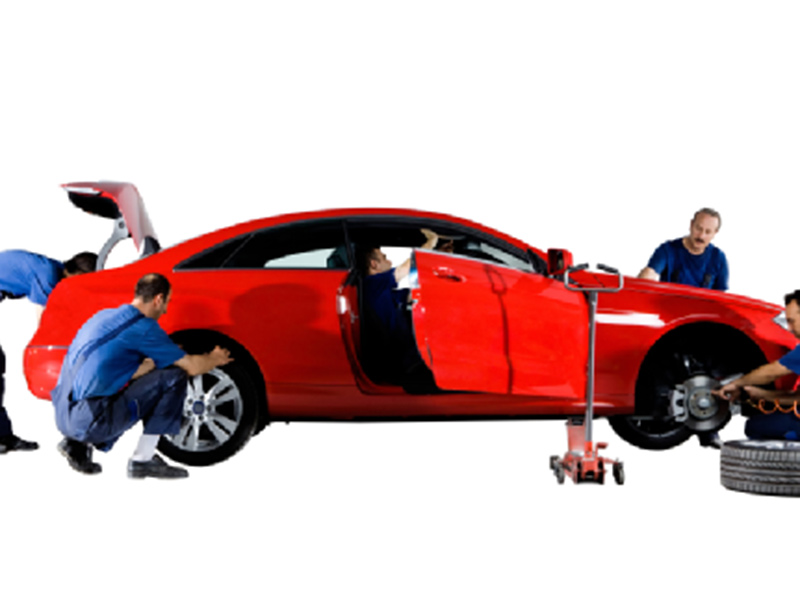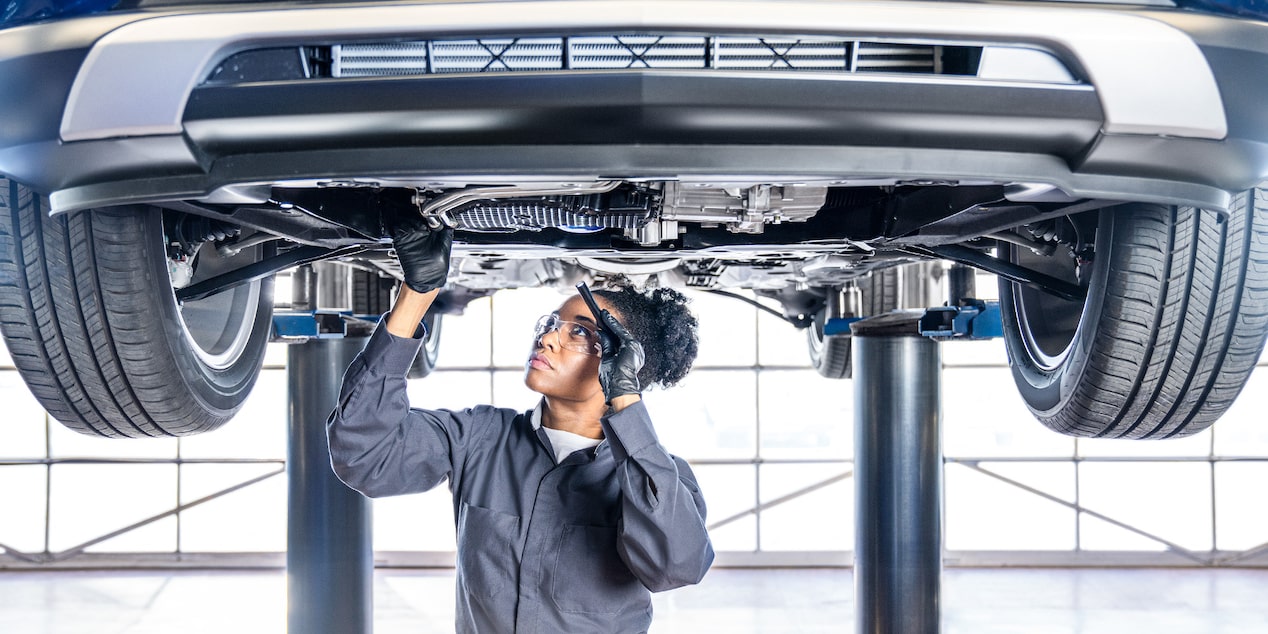All Categories
Featured
When it comes to maintaining an automobile, understanding the differences in between routine repair and maintenance is essential for cars and truck proprietors. Both facets are needed for the long life and reliability of your automobile, yet they serve distinctive functions and are managed differently. By recognizing when to carry out regular maintenance versus when to deal with repairs, you can keep your vehicle running efficiently and prevent expensive surprises.
![]()
Routine Maintenance: Avoidance is Trick. Routine maintenance involves the routine, preventive treatment that your cars and truck needs to prevent future problems. It is normally set up at certain periods, such as every 3,000 or 5,000 miles, based on your automobile's guidebook or maker suggestions. Routine maintenance assists ensure that your car continues to be in ideal condition, preventing deterioration from causing major issues down the line.
Some typical examples of regular maintenance include:
Oil Modifications: Regular oil changes are essential to keep your engine lubed and running successfully. Oil helps minimize rubbing between engine parts, avoiding overheating and unnecessary wear. Tire Upkeep: This consists of tire turnings, balancing, and checking tire stress. Appropriate tire maintenance ensures much better gas efficiency, handling, and tire long life. Brake Inspections: Routine look at your brakes, consisting of pads and fluid degrees, can capture any prospective problems early, protecting against brake failing and making certain safety and security. Liquid Checks and Top-Ups: Guaranteeing your cars and truck has the ideal levels of coolant, transmission liquid, power guiding fluid, and brake fluid is very important for overall car wellness. Air Filter Substitute: Changing the air filter makes sure that your engine obtains tidy air, which aids it run more efficiently and lowers engine stress. Routine upkeep is typically set up and doesn't include repairing any busted parts-- it has to do with keeping whatever in great functioning order and stopping future break downs.
Fixes: Dealing With the Unexpected. Repairs, in contrast, are essential when something fails with your vehicle. Repair work attend to troubles that influence the auto's performance or security and need to be taken care of immediately. Unlike maintenance, which is preventative, repair services commonly happen when parts have actually put on out, failed, or malfunctioned.
Examples of usual fixings include:
Transmission Issues: If your vehicle is having trouble changing experiences or equipments slipping, the transmission may need repair services or replacement. Engine Failure: If your engine starts misfiring, getting too hot, or delaying, it may need substantial fixings or replacement of components like the timing belt, pistons, or seals. Brake Repairs: While brake pads are component of regular maintenance, if your brakes are making a grinding sound or are no more operating appropriately, brake repairs will be needed, such as changing the calipers or the blades. Battery Replacement: If your auto will not start or the battery is no longer holding a fee, you'll require a substitute battery, which is a repair work. Suspension and Guiding Repair Services: Concerns with the suspension or guiding system-- such as difficulty guiding or a tough time-- can be signs that parts like struts or shock absorbers need repair work. Fixings are generally more urgent and expensive than regular upkeep. They are needed when something breaks or malfunctions, which can affect the lorry's performance and security.
Key Distinctions Between Routine Maintenance and Repair Services. Timing: Routine maintenance is preventive and executed at set up periods, while repair work are reactive and occur when something goes incorrect. Cost: Maintenance is normally less costly, as it entails checking and replacing smaller fluids or components. Fixings, particularly significant ones, tend to be much more costly due to the complexity of taking care of defective or broken elements. Purpose: The objective of maintenance is to keep your cars and truck running well and stop problems. Fixings, on the various other hand, are required to fix concerns that have actually currently occurred. Regularity: Routine upkeep happens consistently at set intervals (e.g., every 5,000 miles), while repair services are less predictable, typically happening when components wear or fail out suddenly. Why Both are necessary. Both routine maintenance and repair services are important for the long-lasting health of your vehicle. Normal upkeep assists maintain your vehicle running smoothly and can stop many common problems from developing to begin with. By remaining on top of scheduled services, you can deal with small troubles prior to they turn into expensive repair services.
![]()
Nonetheless, repairs are sometimes inevitable. Despite the ideal maintenance, parts wear out gradually, and unexpected issues can emerge. When repairs are needed, resolving them immediately can protect against more damage and ensure your car's safety and security and integrity.
Final thought. In recap, recognizing the distinction between routine repair and maintenance helps you take the ideal steps to take care of your auto. Regular maintenance can conserve you money by protecting against larger issues, while repairs are needed when something goes incorrect. By remaining proactive with upkeep and dealing with repair work when needed, you can prolong the lifespan of your automobile and guarantee that it continues to execute at its best for several years ahead.

Routine Maintenance: Avoidance is Trick. Routine maintenance involves the routine, preventive treatment that your cars and truck needs to prevent future problems. It is normally set up at certain periods, such as every 3,000 or 5,000 miles, based on your automobile's guidebook or maker suggestions. Routine maintenance assists ensure that your car continues to be in ideal condition, preventing deterioration from causing major issues down the line.
Some typical examples of regular maintenance include:
Oil Modifications: Regular oil changes are essential to keep your engine lubed and running successfully. Oil helps minimize rubbing between engine parts, avoiding overheating and unnecessary wear. Tire Upkeep: This consists of tire turnings, balancing, and checking tire stress. Appropriate tire maintenance ensures much better gas efficiency, handling, and tire long life. Brake Inspections: Routine look at your brakes, consisting of pads and fluid degrees, can capture any prospective problems early, protecting against brake failing and making certain safety and security. Liquid Checks and Top-Ups: Guaranteeing your cars and truck has the ideal levels of coolant, transmission liquid, power guiding fluid, and brake fluid is very important for overall car wellness. Air Filter Substitute: Changing the air filter makes sure that your engine obtains tidy air, which aids it run more efficiently and lowers engine stress. Routine upkeep is typically set up and doesn't include repairing any busted parts-- it has to do with keeping whatever in great functioning order and stopping future break downs.
Fixes: Dealing With the Unexpected. Repairs, in contrast, are essential when something fails with your vehicle. Repair work attend to troubles that influence the auto's performance or security and need to be taken care of immediately. Unlike maintenance, which is preventative, repair services commonly happen when parts have actually put on out, failed, or malfunctioned.
Examples of usual fixings include:
Transmission Issues: If your vehicle is having trouble changing experiences or equipments slipping, the transmission may need repair services or replacement. Engine Failure: If your engine starts misfiring, getting too hot, or delaying, it may need substantial fixings or replacement of components like the timing belt, pistons, or seals. Brake Repairs: While brake pads are component of regular maintenance, if your brakes are making a grinding sound or are no more operating appropriately, brake repairs will be needed, such as changing the calipers or the blades. Battery Replacement: If your auto will not start or the battery is no longer holding a fee, you'll require a substitute battery, which is a repair work. Suspension and Guiding Repair Services: Concerns with the suspension or guiding system-- such as difficulty guiding or a tough time-- can be signs that parts like struts or shock absorbers need repair work. Fixings are generally more urgent and expensive than regular upkeep. They are needed when something breaks or malfunctions, which can affect the lorry's performance and security.
Key Distinctions Between Routine Maintenance and Repair Services. Timing: Routine maintenance is preventive and executed at set up periods, while repair work are reactive and occur when something goes incorrect. Cost: Maintenance is normally less costly, as it entails checking and replacing smaller fluids or components. Fixings, particularly significant ones, tend to be much more costly due to the complexity of taking care of defective or broken elements. Purpose: The objective of maintenance is to keep your cars and truck running well and stop problems. Fixings, on the various other hand, are required to fix concerns that have actually currently occurred. Regularity: Routine upkeep happens consistently at set intervals (e.g., every 5,000 miles), while repair services are less predictable, typically happening when components wear or fail out suddenly. Why Both are necessary. Both routine maintenance and repair services are important for the long-lasting health of your vehicle. Normal upkeep assists maintain your vehicle running smoothly and can stop many common problems from developing to begin with. By remaining on top of scheduled services, you can deal with small troubles prior to they turn into expensive repair services.

Nonetheless, repairs are sometimes inevitable. Despite the ideal maintenance, parts wear out gradually, and unexpected issues can emerge. When repairs are needed, resolving them immediately can protect against more damage and ensure your car's safety and security and integrity.
Final thought. In recap, recognizing the distinction between routine repair and maintenance helps you take the ideal steps to take care of your auto. Regular maintenance can conserve you money by protecting against larger issues, while repairs are needed when something goes incorrect. By remaining proactive with upkeep and dealing with repair work when needed, you can prolong the lifespan of your automobile and guarantee that it continues to execute at its best for several years ahead.
Latest Posts
Picking the Right Roofing Color: Influence On Power Performance
Published en
1 min read
Explore Your Financial Partner at WyHy – Member-Focused Services for Your Goals
Published en
1 min read
Uncover Premier Vehicle Maintenance Care offered by Montclare Auto Repair – Drive with Confidence
Published en
1 min read
More
Latest Posts
Picking the Right Roofing Color: Influence On Power Performance
Published May 25, 25
1 min read
Explore Your Financial Partner at WyHy – Member-Focused Services for Your Goals
Published May 24, 25
1 min read
Uncover Premier Vehicle Maintenance Care offered by Montclare Auto Repair – Drive with Confidence
Published May 22, 25
1 min read